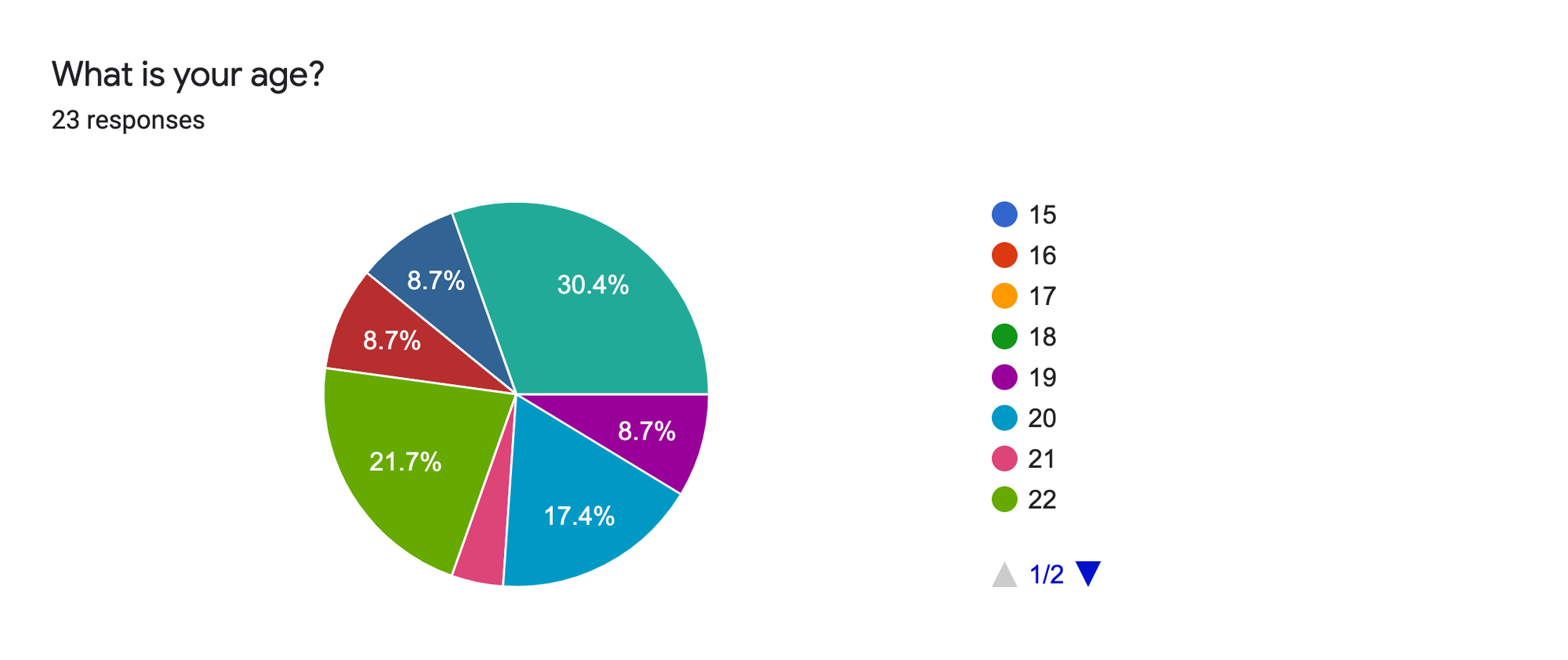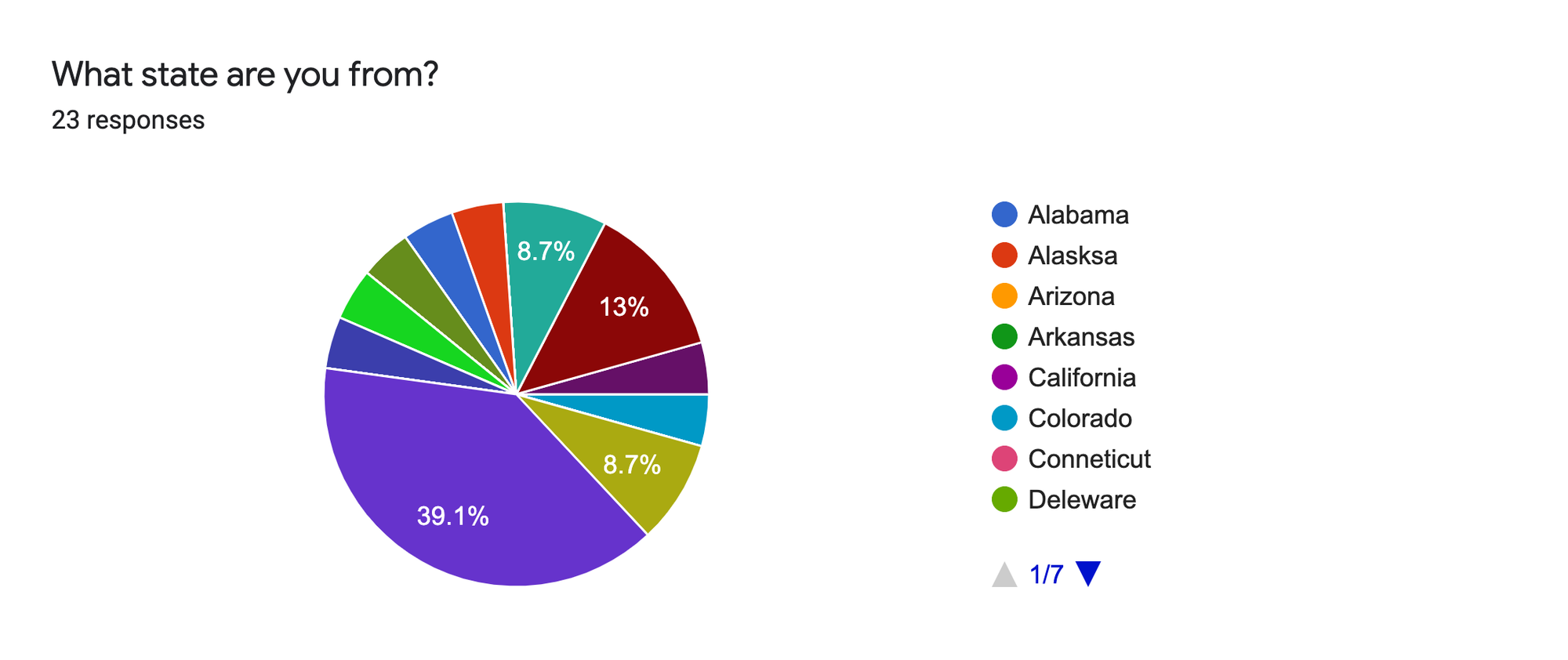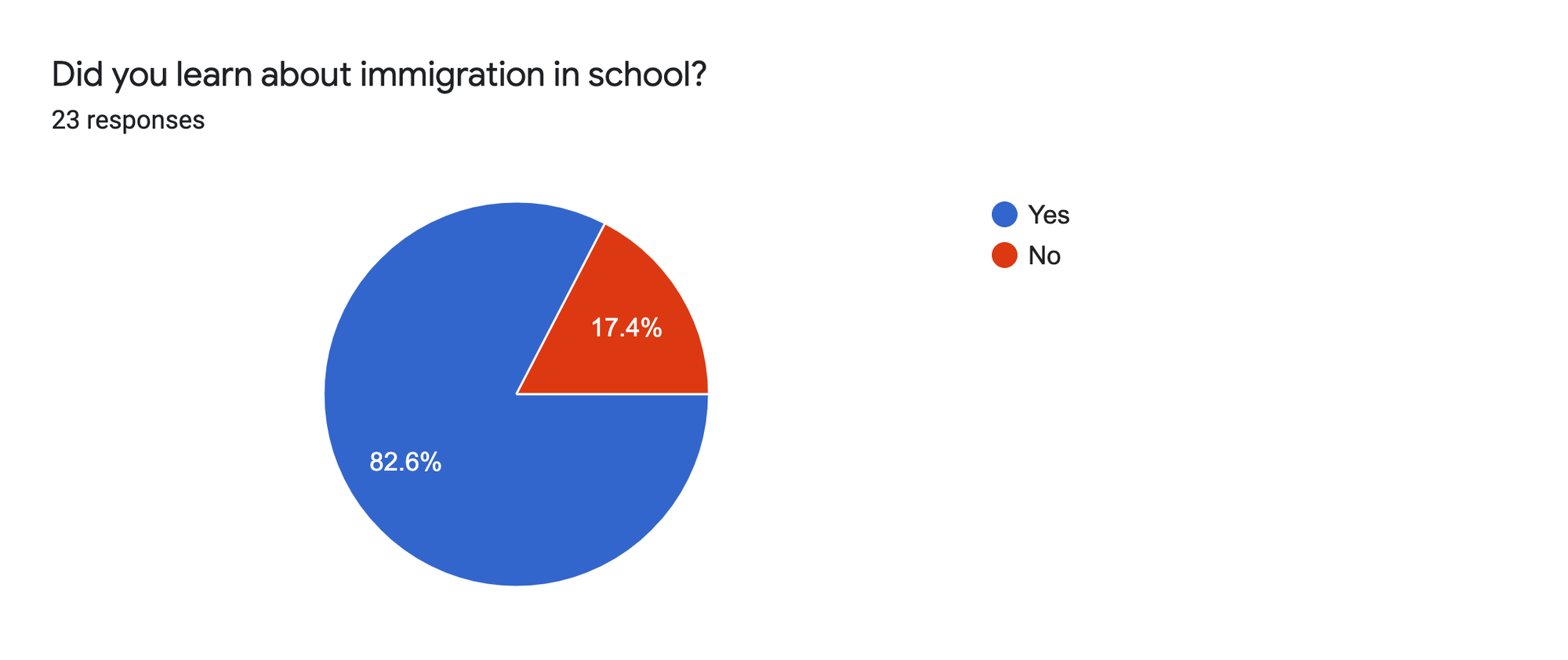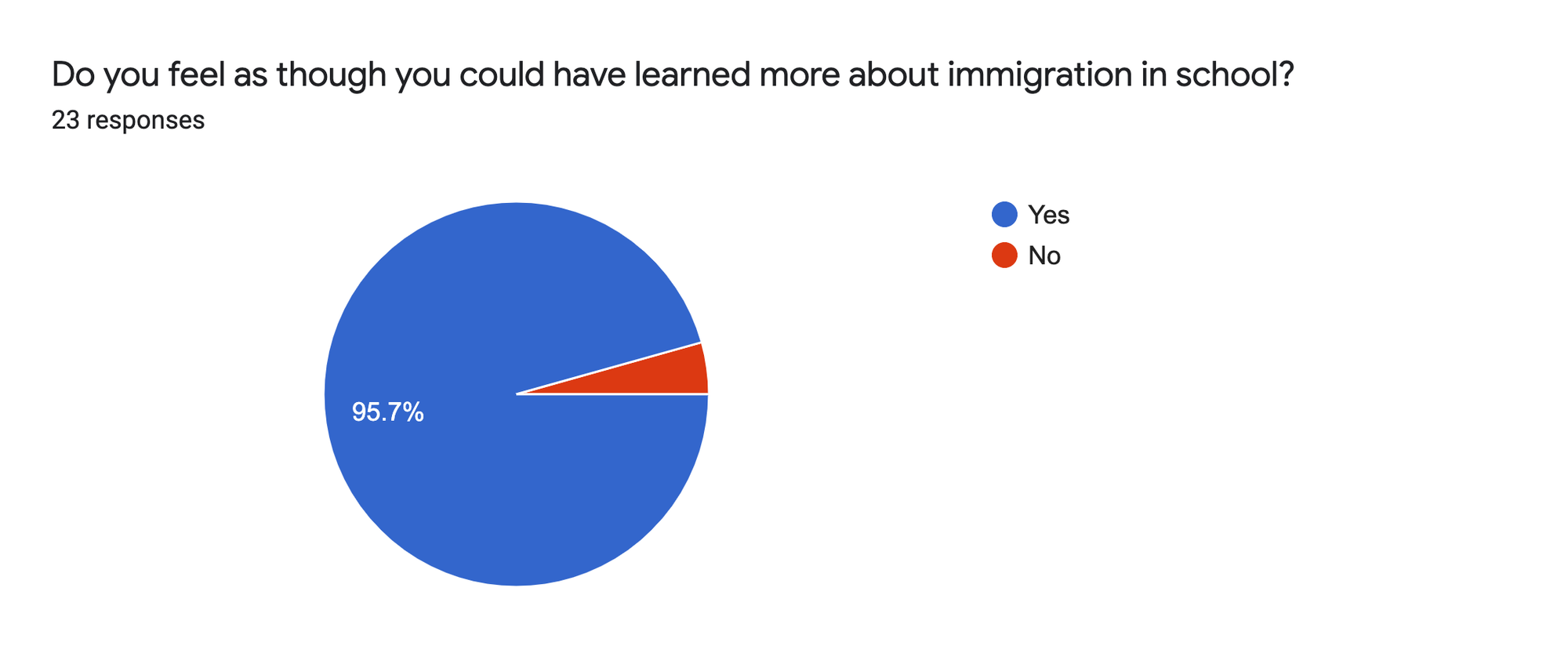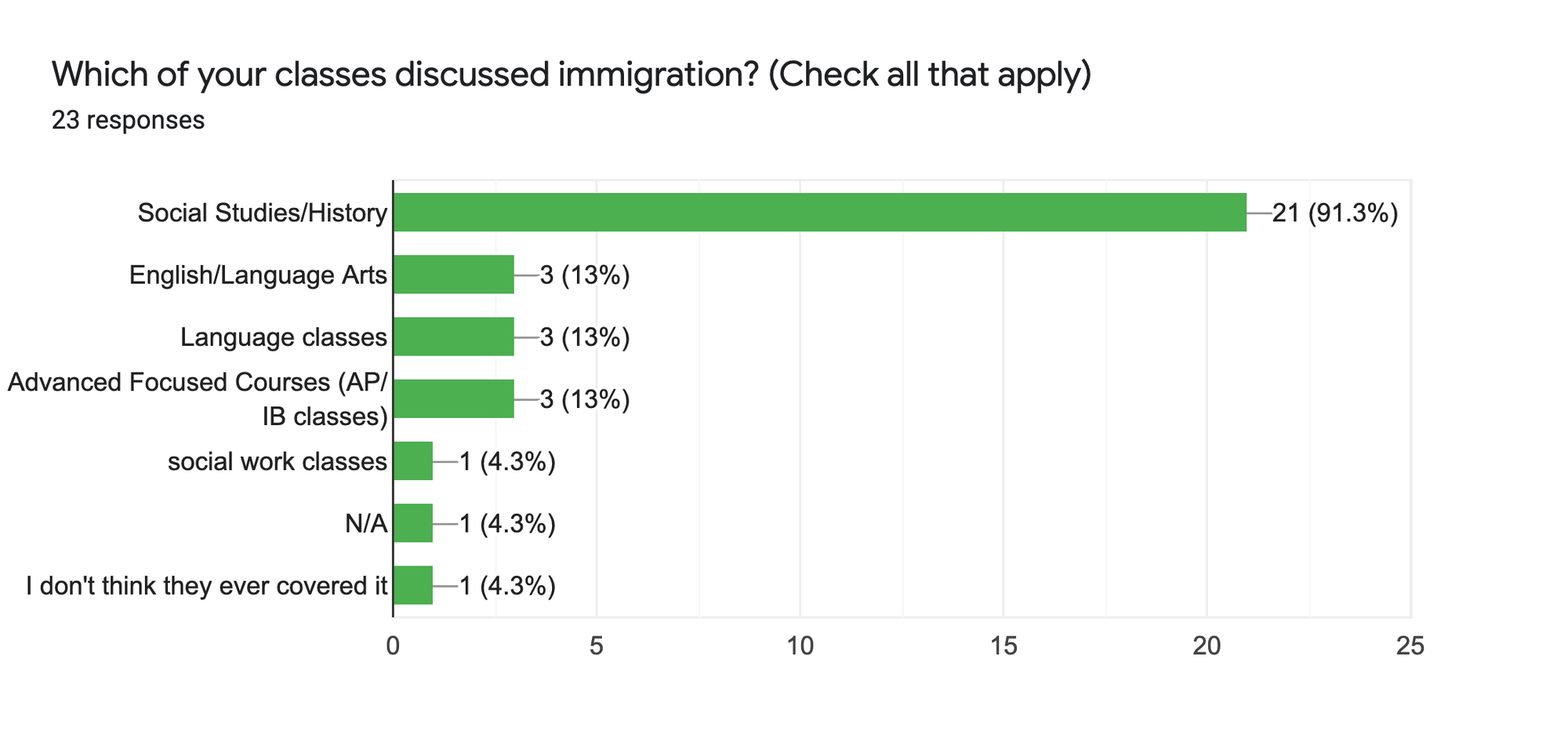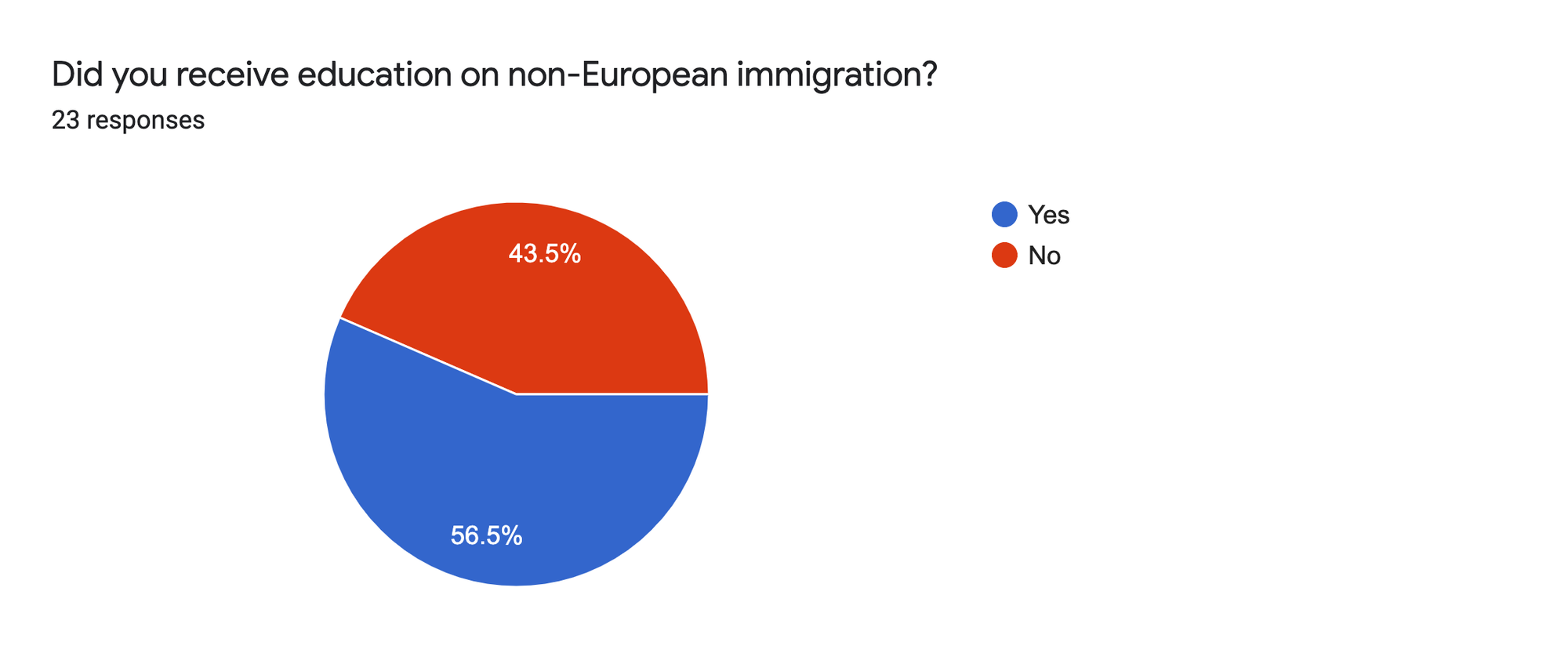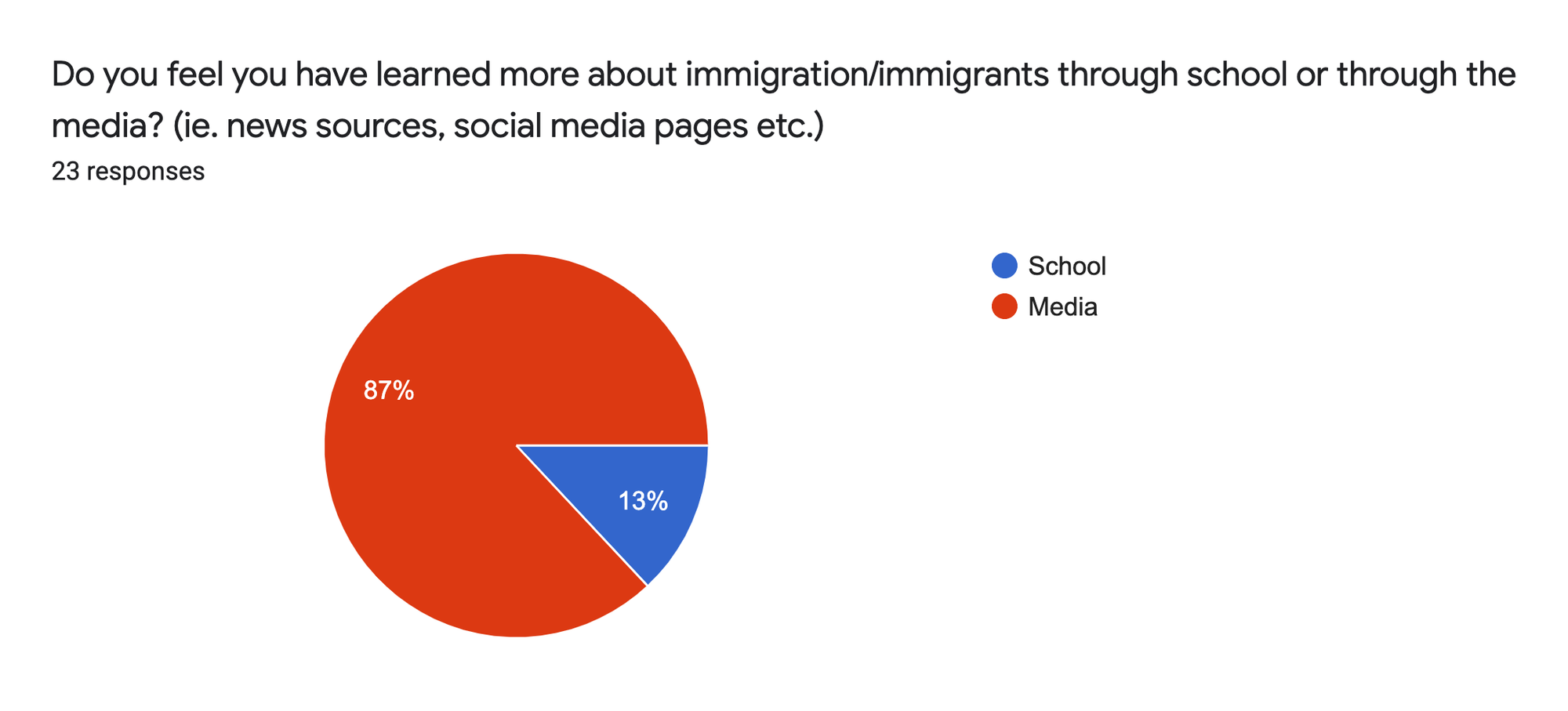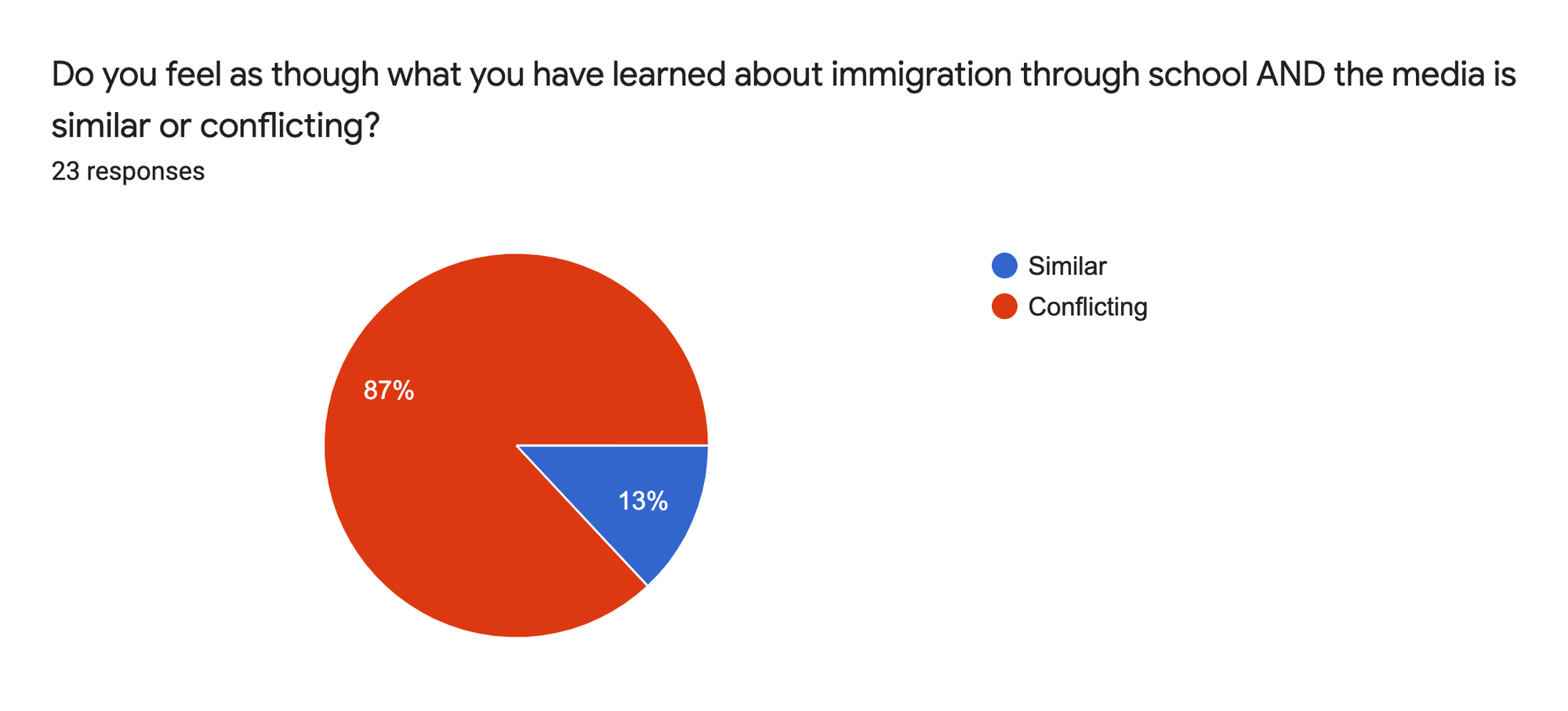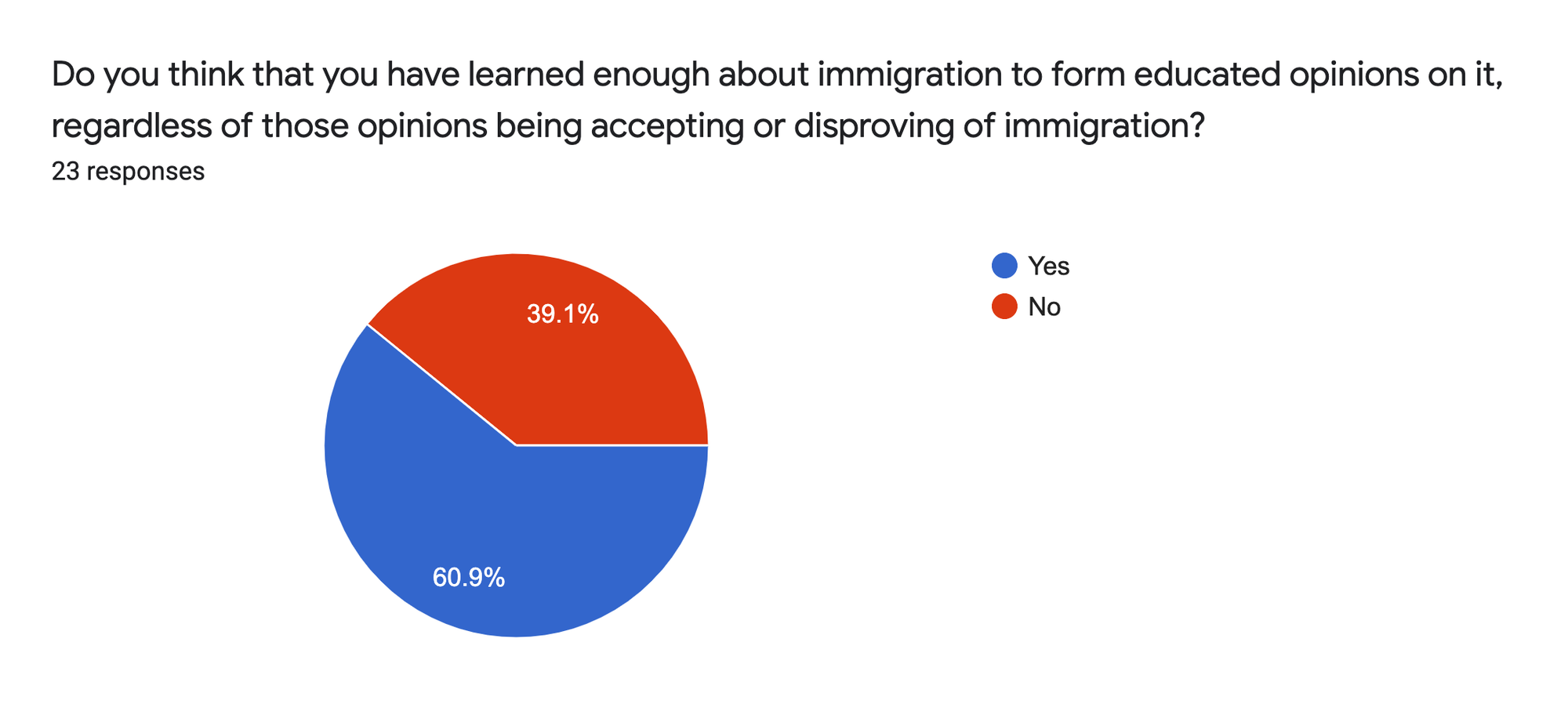Questionnaires
Questionnaire #1: Exploring Stereotypes and False Narratives
The purpose of this questionnaire is to see what people think about illegal immigrants and if the stereotypes are true. The data we collect support our narratives. The participants are mostly Americans. There’s not a limit to the participating Americans, because we want to gather as many perspectives as we can. For medium, google form was used to make the questionnaire. We spread the questionnaire to the audience through social media and text messages.
This first questionnaire was distributed mainly via social media websites so that we could get a larger number of responses. The survey was open for roughly one week and during that time we received 55 total responses. There were a few demographic questions to determine location (this survey was restricted to people living in the United States), age, political affiliation, and citizenship status (this question was optional). Then, we had 9 questions which were phrased as statements, to which the participant was required to select how strongly they agreed or disagreed with the statement. We found that our respondents were heavily identified as some form of liberal, were mainly located in the Midwest, and most were in their late teens or 20s.
Summary
81.8% were under the age of 30.
72.7% of respondents stated that they live in the Midwest. Every region of the continental US had at least one response in the survey.
Only 7.2% of respondents identified themselves as some strength of Republican, while 69.1% identified as some type of liberal.
94.5% of respondents were US citizens, 2 respondents were permanent residents, and one respondent responded with "other".
Conclusion
In this questionnaire, we included statements such as “illegal immigrants steal jobs from Americans,” “illegal immigrants don’t pay taxes,” and “illegal immigrants should be included in the unemployment rate” to get a better understanding at what Americans think about illegal immigrants. The result shows that most of the participants hold a liberal and more “welcoming” perspective towards illegal immigrants. The majority (89.1%) disagree with the statement that illegal immigrants steal jobs from Americans. They also support illegal immigrants to get education, share the same rights as Americans, and avoid deportation. Illegal immigrants are not seen as a threat to the economy and society, but more as a group that’s forced to leave their countries and settle here in the U.S. for opportunities.
For statements such as “it’s the employer’s responsibility to not hire illegal immigrants,” “illegal immigrants don’t pay taxes,” and “illegal immigrants should be required to go through the process of obtaining a legal status,” we get more of a split result. The number of participants that agree are almost the same as those who disagree. It’s understandable, because these statements require more knowledge than personal belief. It requires more thinking to come to a decision. Although most of the participants are friendly towards illegal immigrants, it’s believed that there’s still a line between American citizens and illegal immigrants because of the social status.
Charts
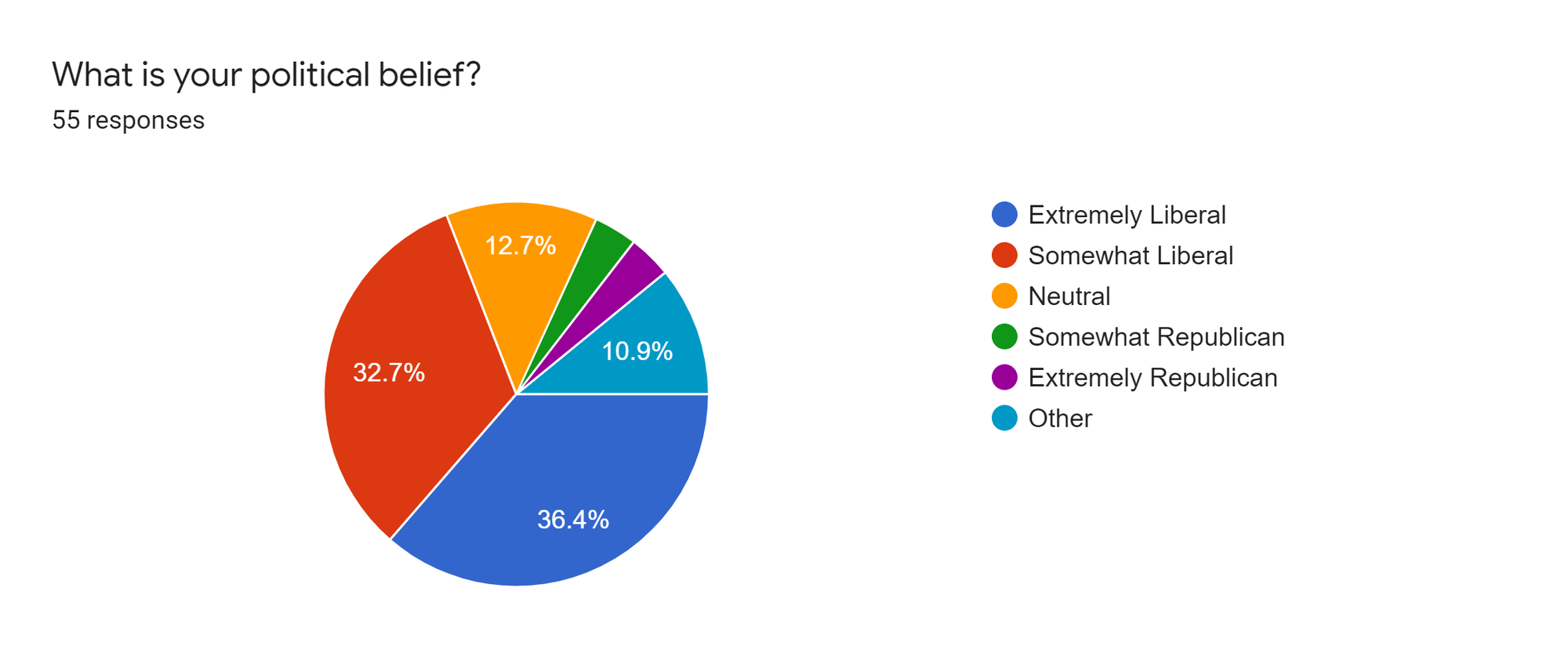
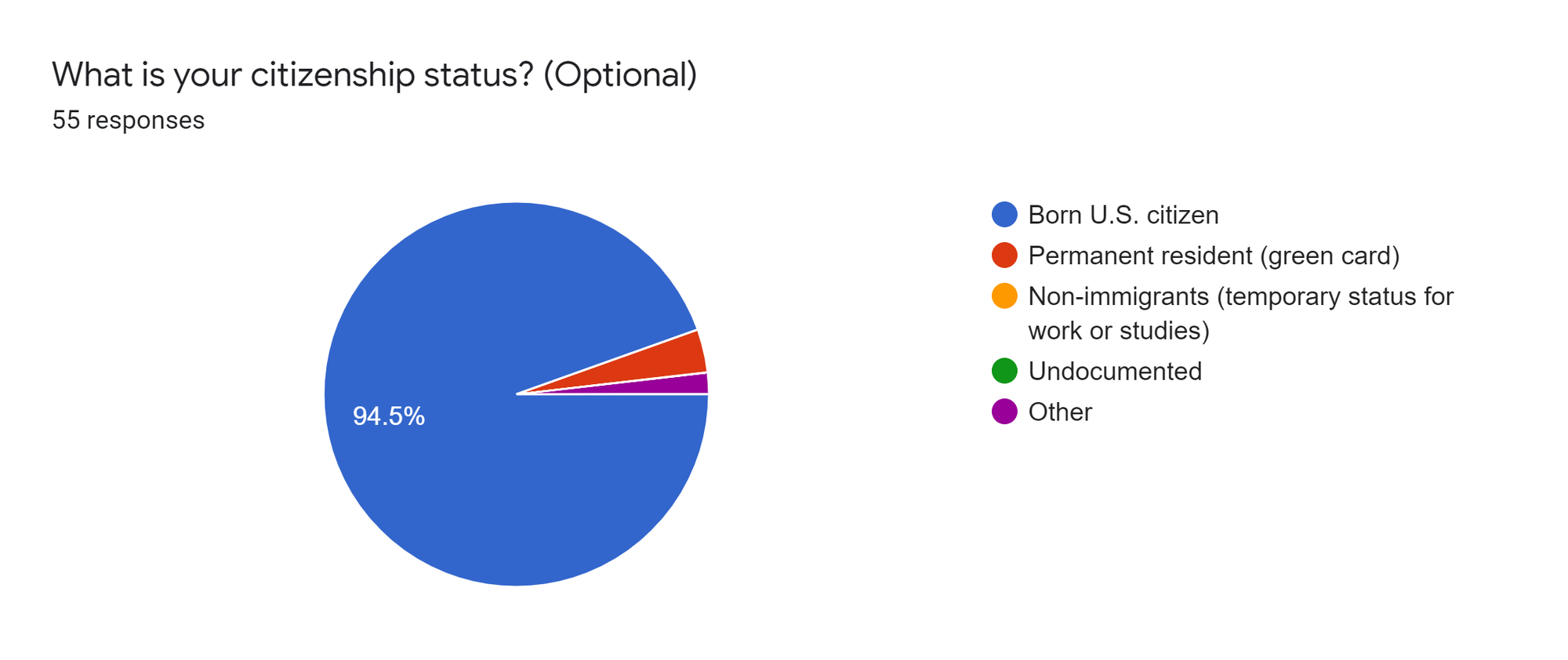

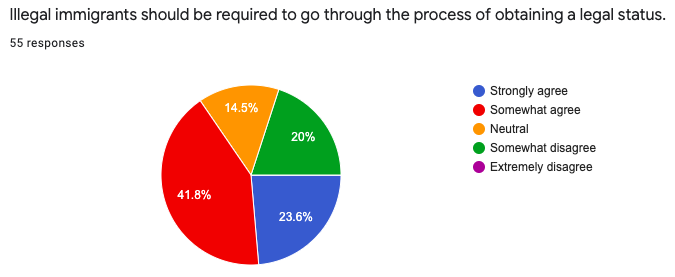


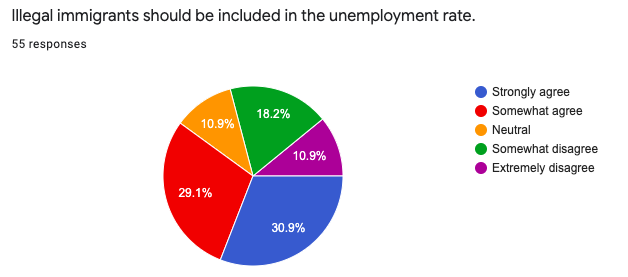

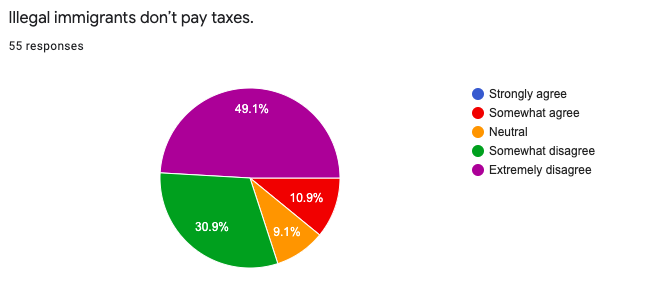
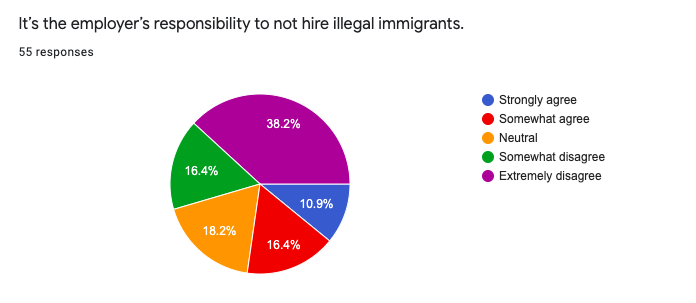
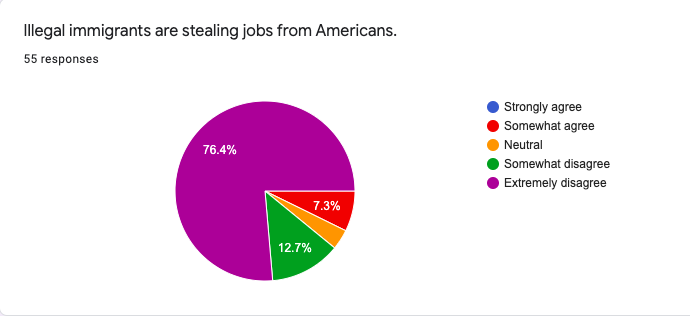
Questionnaire #2: Immigration Education
The purpose of this second questionnaire is to supplement the first questionnaire. With this new information about the kind of education people received about immigration in school, we can begin to look at how that information relates to peoples' opinions on immigration. The data supports our hypothesis. The questionnaire was made through Google Forms and mainly distributed through social media. The participants are all American because we wanted to see only the opinions of immigration from Americans in order to understand why and how people continue believe in false narratives.
This second questionnaire was distributed mainly through social media in order to get a variety of responses. The questionnaire was restricted to American citizens, and we received 23 responses. The first couple questions were about demographics; the age of the participant and the state that they are from. These were included in order to determine if there was any relationship between age or state and the kind of immigration education the respondents received. Then, we had 7 questions that were used to determine what kind of education the respondents received about immigration, whether it be from school or (social) media. Most respondents were from Indiana (39.1%). We found that the majority of them felt they learned enough about immigration to form an educated opinion on it, despite saying that they learned most of their information through media and that the media information mostly conflicted with what they learned in school.
Summary
30.4% of respondents were over the age of 26.
52.1% of respondents were from the midwest. An overwhelming majority (39.1%) being from Indiana.
82.6% of respondents learned about immigration in school, but 95.7% thought that their education was insufficient and they could have learned more about immigration. This insufficient education may be related to the 43.5% of respondents saying they did not receive education on non-European immigration.
87% of respondents said they learned more information about immigration through media (news sources, social media pages etc.) than from school.
87% of respondents thought that the information they learned in school conflicted with the information they sought through online media. And despite this, 60.9% think they have learned enough about the reality of immigration to form an educated opinion on it.
Conclusion
Four of our questions were related to the kind of immigration education respondents received in school specifically. This included questions about what classes this information was given in, if they received any non-European immigration education, and how they felt about the immigration education they received. 91.3% responded that they learned about immigration in a social studies or history class. Other classes like english/language arts, foreign language, and AP or IB classes also discussed the topic of immigration with all 3 options receiving 13% of responses. The majority (95.7%) of respondents said that they felt they could have learned more about immigration in school. This shows an interesting relation to the responses we received about how people felt about their overall knowledge of immigration, like if it came from media. The majority (87%) felt that the information they learned about immigration in school conflicted with the information they learned through online media. Despite this, 60.9% of our respondents still felt that they have learned enough about immigration to form an educated opinion on it.
U.S. Citizens have been receiving false information about immigration, likely for the current (Trump) administration to inflict fear in Americans that will make immigrants feel less welcome here, therefore reducing the number of immigrants coming into the country. This theory could be a real possibility after looking at the information from both questionnaires we conducted.
Overall, Americans need to be more cautious with the information they intake. Media isn't always 100% true information, and since schools do not teach enough about immigration, it is imperative that we be more critical when educating ourselves on such important topics. Information should come from non-biased, reliable sources; preferably peer-reviewed in order to ensure you are intaking factual information.
Charts
